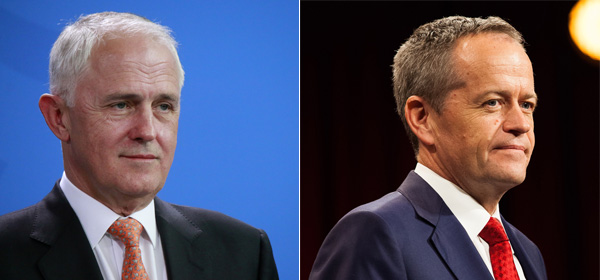There is not a lot the Coalition and the ALP agree on, but the prospect of greater job security does seem to have them energised this week.
Opposition Leader Bill Shorten raised the prospect of introducing fixed, four-year electoral terms on Sunday, and it did not take long for Prime Minister Malcolm Turnbull to reach out to discuss the idea.
Mr Shorten said the current system was stifling reform and suggested governments would be bolder and more daring if they were not constantly thinking about the next election.
It isn’t the first time this idea has been floated. Earlier this year, Liberal MP David Coleman introduced a draft Bill for four-year terms, arguing it would make it easier for governments to implement long-term policies.
Mr Shorten and Mr Turnbull seem to forget that politicians have been able to pass unpopular long-term legislation under the current three-year election cycle without too much trouble.
John Howard managed to introduce the vastly unpopular GST legislation in 2000 and was re-elected one year later and again in 2004.
Bob Hawke’s Labor Government was able to deregulate Australia’s financial system, float the dollar, and introduce the first Medicare levy – all moves that were unpopular, but none of which managed to change the Silver Budgie’s electoral popularity.
The problem now is that politicians from the major parties are on the nose with the electorate and support is increasingly drifting away to non-traditional parties – the Greens on the left and One Nation on the right.
The electorate would welcome a politician with vision in the Hawke, Keating or Howard mould, willing to put a long-term plan to the country and explain its merits. Unfortunately, no leader from either party recently has been able to rely on the electorate to back a vision.
The issue of fixed terms, separate from an increase in the length of the terms, is definitely one worth considering.
According to The Australia Institute (TAI), sine 1910 the average length of government has only been two-and-a-half years.
TAI’s Ben Oquist told ABC News Breakfast that the problem isn’t that we don’t have four-year terms, it is that we don’t have three-year terms.
“By fixing it at three years, we get ourselves a longer term — it’d be good for democracy, it would stop [the] prime minister being able to pick and choose election dates and manipulate election timing, it would be better for governing and we wouldn’t waste so much about when an election’s going to be,” Mr Oquist said.
The good news is that changing to a four-year electoral cycle would require a referendum, something that may prove hugely unpopular with a cynical electorate. Fixing an election date every three years, however, would not require a referendum.
What do you think? Would you support fixed, four-year terms for our politicians? Would you vote for it in a referendum?
Related articles:
Coalition dumped in opinion polls
Aussies tired of unfair economy
PM could call an early election

